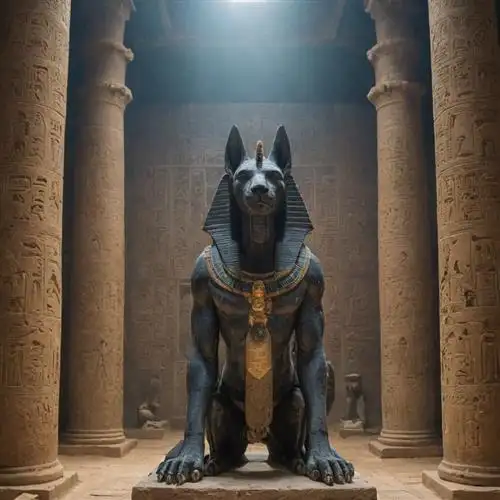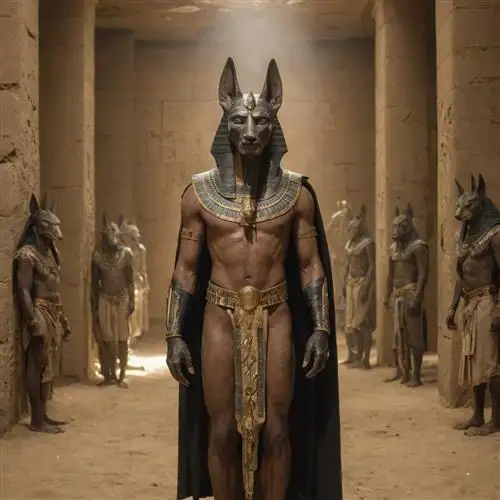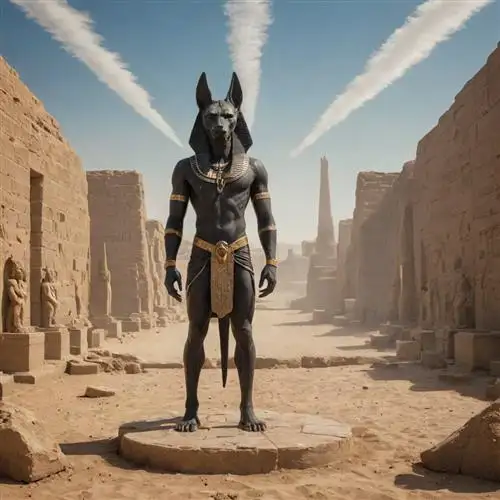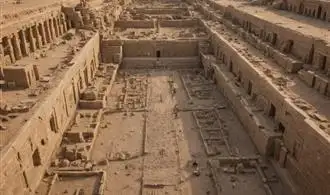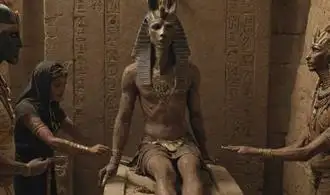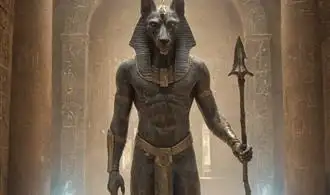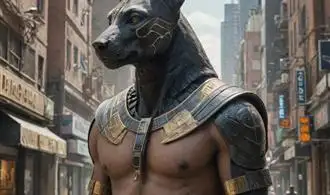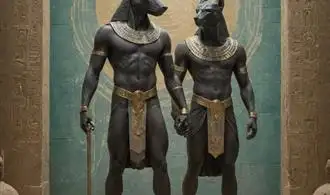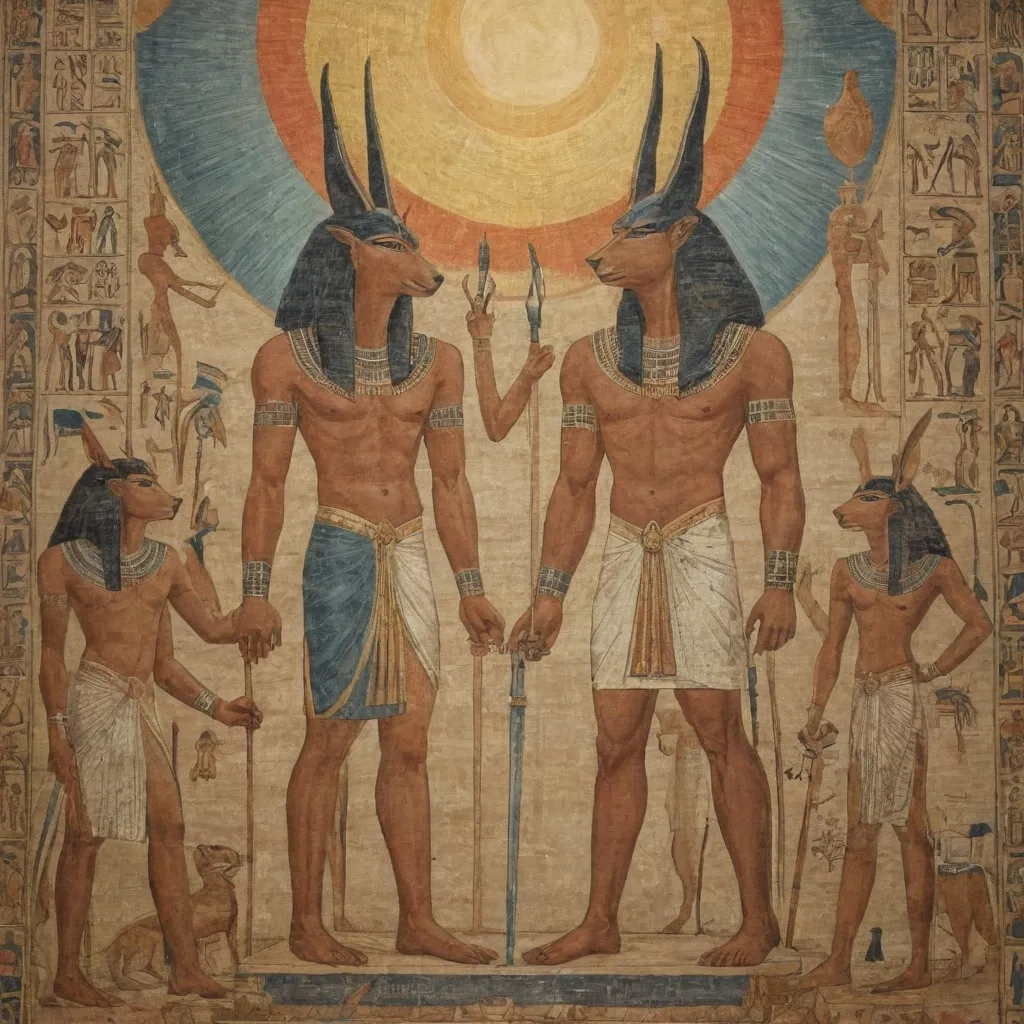
Anubis The Jackal Headed God
Anubis, the jackal-headed deity, holds a revered place in ancient Egyptian mythology. This enigmatic figure served as the guardian of the dead, responsible for the crucial process of mummification and the weighing of the soul during the final judgment. With his canine visage and keen senses, Anubis guided the deceased through the treacherous realm of the underworld, ensuring a safe passage to the afterlife.
The jackal, a cunning and adaptable creature, was chosen as Anubis' symbolic form, reflecting his role as a protector and psychopomp - a deity who escorts souls to the afterlife. Jackal-like creatures were often observed near burial sites, leading the ancient Egyptians to believe they were guarding the dead. This association with the jackal cemented Anubis' status as the premier deity of the underworld, responsible for the delicate transition from life to death.
Anubis' primary function was the mummification of the deceased, a process that was believed to be essential for the preservation of the soul. He was responsible for overseeing the intricate steps of embalming, from the removal of the internal organs to the wrapping of the body in linen. This meticulous care ensured that the deceased would be prepared for their journey to the afterlife, with their physical form intact and protected.
During the final judgment, Anubis played a pivotal role. He was tasked with weighing the heart of the deceased against the feather of Ma'at, the goddess of truth and justice. If the heart was found to be pure and free of sin, the individual was granted passage to the afterlife. However, if the heart was found to be heavy with wrongdoing, the individual would face the devouring of their soul by the monstrous Ammit, a composite creature with the head of a crocodile, the body of a lion, and the hindquarters of a hippopotamus.
Anubis' influence extended beyond the realm of the dead, as he was also associated with healing and the protection of the living. As a god of embalming and the underworld, Anubis was believed to possess a deep understanding of the human body and the mysteries of life and death. This knowledge was often sought by the living, who turned to Anubis for guidance and healing in times of illness or crisis.
The veneration of Anubis was widespread throughout ancient Egypt, with temples and shrines dedicated to his worship found across the land. His image was prominently featured in funerary art and rituals, and he was often depicted alongside other deities such as Osiris, the god of the afterlife, and Isis, the goddess of magic and healing.
The Role of Anubis in Funerary Rites
Anubis, the Egyptian god of the dead, played a crucial role in the intricate funerary rites of ancient Egypt. As the jackal-headed deity responsible for the embalming and protection of the dead, Anubis guided the souls of the deceased through the treacherous journey of the underworld. His presence was integral to the elaborate mummification process, ensuring the safe passage of the deceased into the afterlife.
The rituals associated with Anubis were not merely symbolic; they were believed to have a practical and spiritual significance. The mummification process, overseen by Anubis, was a meticulous and painstaking affair, involving the removal of internal organs, preservation of the body, and the wrapping of the deceased in linen. This complex procedure was not only a means of preserving the physical form but also a way to prepare the soul for its journey through the underworld.
Anubis's role in the funerary rites extended beyond the mummification process. He was believed to be present at the weighing of the heart ceremony, a critical moment in the afterlife journey. During this ceremony, the deceased's heart was weighed against the feather of truth, symbolizing the individual's moral character and worthiness to enter the afterlife. Anubis, as the guardian of this sacred ritual, ensured the fairness and accuracy of the proceedings, determining the fate of the soul.
Moreover, Anubis was responsible for the protection of the deceased's body and soul during the transition to the afterlife. He was depicted guarding the embalmed body, ensuring its preservation and preventing any harm or desecration. Additionally, Anubis was believed to guide the deceased's soul through the dangerous and treacherous paths of the underworld, shielding them from the various dangers and obstacles that lay in their way.
The Symbolic Significance of Anubis
Anubis, the jackal-headed Egyptian deity, holds immense symbolic significance in the rich tapestry of ancient Egyptian mythology. As the god associated with the underworld, mummification, and the afterlife, Anubis played a crucial role in guiding the deceased through the perilous journey of the afterlife.
One of the most prominent symbolic associations of Anubis is his connection to the process of mummification. As the patron deity of this sacred ritual, Anubis was responsible for overseeing the meticulous preparation of the deceased's body, ensuring the preservation of the physical form for the journey into the afterlife. This role symbolized Anubis' authority over the transformation from mortal to immortal, a crucial step in the Egyptian conception of the afterlife.
Beyond his association with mummification, Anubis also held a significant symbolic role in the judgment of the dead. In the famous "weighing of the heart" ceremony, Anubis would oversee the process of weighing the deceased's heart against the feather of Ma'at, the goddess of truth and justice. This symbolic act represented the evaluation of the individual's moral worth, determining their fitness to proceed to the afterlife. Anubis' role as the guardian of this pivotal moment highlighted his authority over the transition from life to death.
Additionally, Anubis' jackal-headed form held deep symbolic meaning. The jackal, a scavenger known to frequent cemeteries and burial sites, was seen as a creature intimately connected with the world of the dead. Anubis' jackal-like appearance, therefore, symbolized his dominion over the liminal spaces between the living and the deceased, reinforcing his role as a guide and protector of the dead.
Anubis in Ancient Egyptian Mythology
Anubis, the jackal-headed deity, holds a profound significance in the rich tapestry of ancient Egyptian mythology. As the god of embalming and the underworld, Anubis played a crucial role in the intricate rituals and beliefs surrounding death and the afterlife.
In the ancient Egyptian pantheon, Anubis was responsible for guiding the deceased through the treacherous journey of the afterlife. He was believed to oversee the mummification process, ensuring the proper preservation of the body, which was essential for the soul's safe passage to the next world. Anubis' presence was ubiquitous in the funerary rites, as he was often depicted standing guard over the deceased, or weighing the heart of the dead against the feather of truth to determine their worthiness for eternal life.
The jackal-headed figure of Anubis held deep symbolic meaning, as the jackal was believed to be a sacred animal associated with the necropolis and the liminal space between the realms of the living and the dead. This association with the jackal, a creature that scavenged in the desert, reinforced Anubis' role as the guardian of the dead and the protector of the transition from life to the afterlife.
Anubis' prominence in ancient Egyptian mythology is further exemplified by his role in the famous weighing of the heart ceremony. During this pivotal moment, the deceased's heart was weighed against the feather of truth, representing the moral and ethical balance of the individual. Anubis, as the conductor of this ritual, played a crucial part in determining the fate of the soul, ensuring that only the righteous would be granted passage to the afterlife.
Beyond his role in the afterlife, Anubis was also revered as a deity of healing and protection. He was believed to have the power to ward off evil spirits and to guide the living through periods of illness or crisis. This multifaceted nature of Anubis, encompassing both the realms of the dead and the living, contributed to his enduring significance in the ancient Egyptian worldview.
The cult of Anubis was widespread throughout ancient Egypt, with numerous temples and shrines dedicated to his worship. The city of Cynopolis, located in the Nile Delta region, was considered the primary center of Anubis' cult, where he was venerated as the patron deity of the region.

